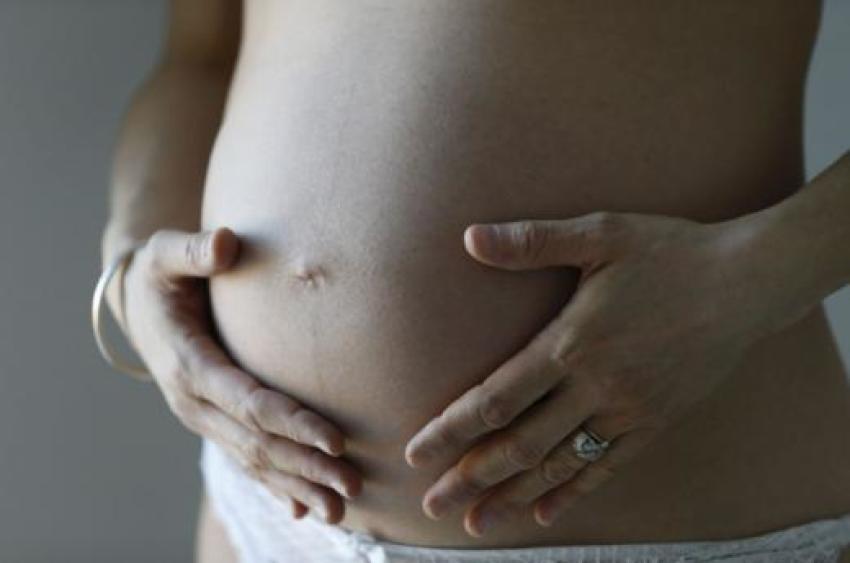Abortion Recovery Belongs in Church, but First the Church Must Care Enough to Listen

Being pregnant means you are the parent of an unborn child.
We celebrate that simple truth if it's a wanted pregnancy. A collective effort springs up to nurture and uphold mother and child through baby showers, pregnancy parking spots and elaborate gender reveals on Facebook.
Yet, too often today, the world conspires to override the reality of that child and our community obligation toward him or her. Instead, we help to end that life through silence, counterfeit compassion ("women need abortion") and washing our hands of a mother's needs in the name of privacy.
Is the church complicit in these cases? Research from George Barna would seem to suggest so. His 2015 study, What God's People Want to Know, found abortion was the No. 1 social issue on which people want preaching and teaching. This suggests at least a baseline level of concern for our youngest neighbors and their mothers and families. Yet the vast majority of pastors aren't preaching on abortion. Why? Another Barna study suggests cowardice in the pulpit and complacency about that in the pews. Some pastors are compromised by their own involvement with abortion. They need compassionate care.
But it all adds up to a church serenely at peace with abortion.
According to 2017 Pew research, my own views are considered "extreme;" I'm joined by only 16 percent of Americans who are against abortion, except to save the life of the mother. (Even in those cases, I believe the only moral and ethical thing is to exert every effort to save the child.) I didn't always think this way. And my attendance at church was not the decisive influence.
I've stood on both sides of this issue or, rather, on several sides.
When I chose abortion, I had no real opinion on it. Every day, I must live with having suffered the loss of my child as a result of my ignorant default acceptance of pro-abortion rhetoric and deceptive abortion industry practices. Then for years I suffered unresolved guilt—silently against abortion, but saying I had no right to tell others what to do. Then I was solidly against abortion because my grief was so palpable, I knew it must have harmed others like me. Then I became pro-life because my heart was broken over the massive loss of life due to our policies and practices. Still, my concern for women and the appeal to the hard cases of rape and incest caused me to withhold protection for the children conceived in those circumstances. But then I studied the bioethical basis for the pro-life position, which led me to believe abortion is the pre-eminent moral crisis of our time.
My evolving views have paralleled my spiritual growth, in large part fueled by a quest for truth to help me reconcile my fatal mistake. A large amount of credit for my healing and accepting the gifts of repentance and mercy goes to my pastor, who had no idea I'd experienced abortion 20 years earlier.
He simply preached that life begins at conception and therefore abortion is morally wrong. That truth freed my guilty conscience as I learned that God's love and mercy covers all sin. The first step to healing is to acknowledge our sin. Staying silent on abortion silences the healing power of confession and fosters shame, isolation and despair.
Abortion advocates complain that Christians just want to control women. But if anything, mainstream Christianity drives abortion proliferation in our world today.
Well over half of Episcopalian, Presbyterian, Methodist and Anglican church members support abortion in most or all cases. Had I been attending one of these churches as I struggled to resolve the bloodguilt of abortion, those church cultures' acceptance of it would have left me further tangled in my emotional morass.
As a people, we are now in a post-abortion world. You can shout your abortion, you can pressure a vulnerable teen in the name of helping her, you can demand that physicians and community organizations comply with the abortion-as-social-good agenda.
All of these phenomena echo through the silence of the American church. It's almost as if religious folk are going out of their way to avoid their neighbors' needs in order to defend their status quo. It's almost as if Jesus predicted we would so we could resonate his rebuke of that problem in his church today.
The good news is many of us are healing by the merciful love of Jesus Christ and a community of His people who willingly help us do the hard work of grieving this great loss.
By the grace of God, I am what I am, and I'm not who I was when I made that choice.
But to prevent just one woman experiencing abortion grief—and save just one child—that's why I speak up for the voiceless.
And I encourage abortion bystanders, both inside the church and out, to do the same.
Kim Ketola is the host and executive producer of Cradle My Heart Today, a companion to her award-winning book Cradle My Heart, Finding God's Love After Abortion. Kim's radio work earned her induction into the Minnesota Broadcasting Hall of Fame in 2013. Cradle My Heart is a safe space for listeners to share stories and connect with others who are finding God's love—especially during unintended pregnancy and after abortion.



























